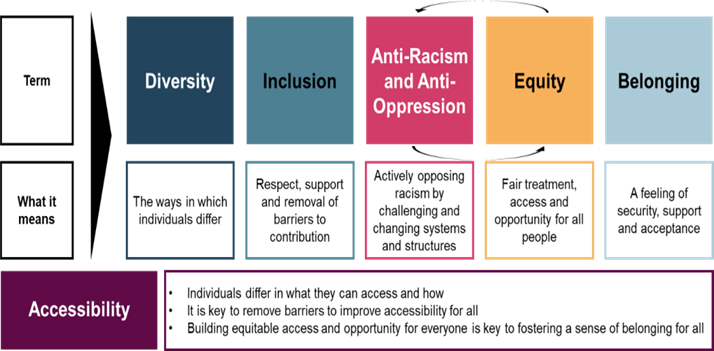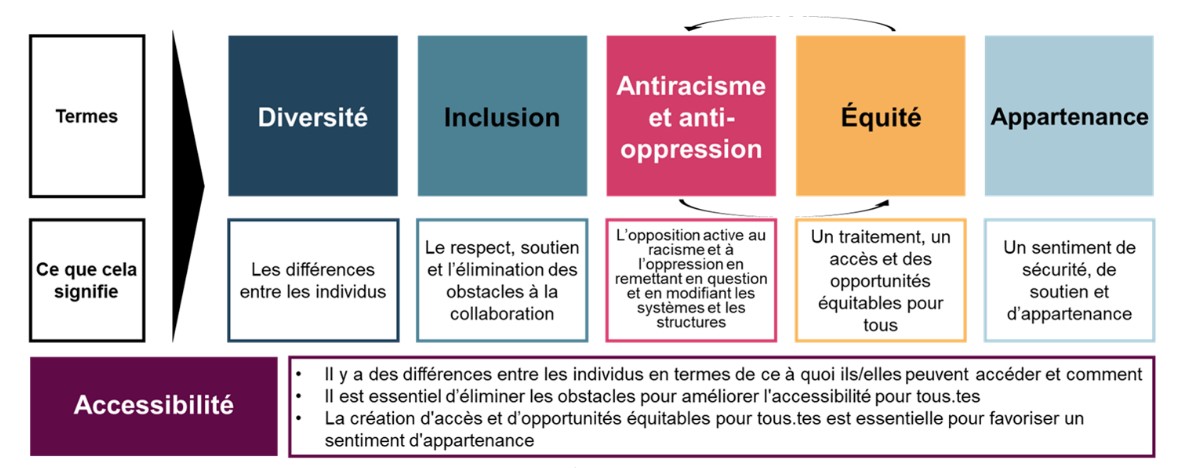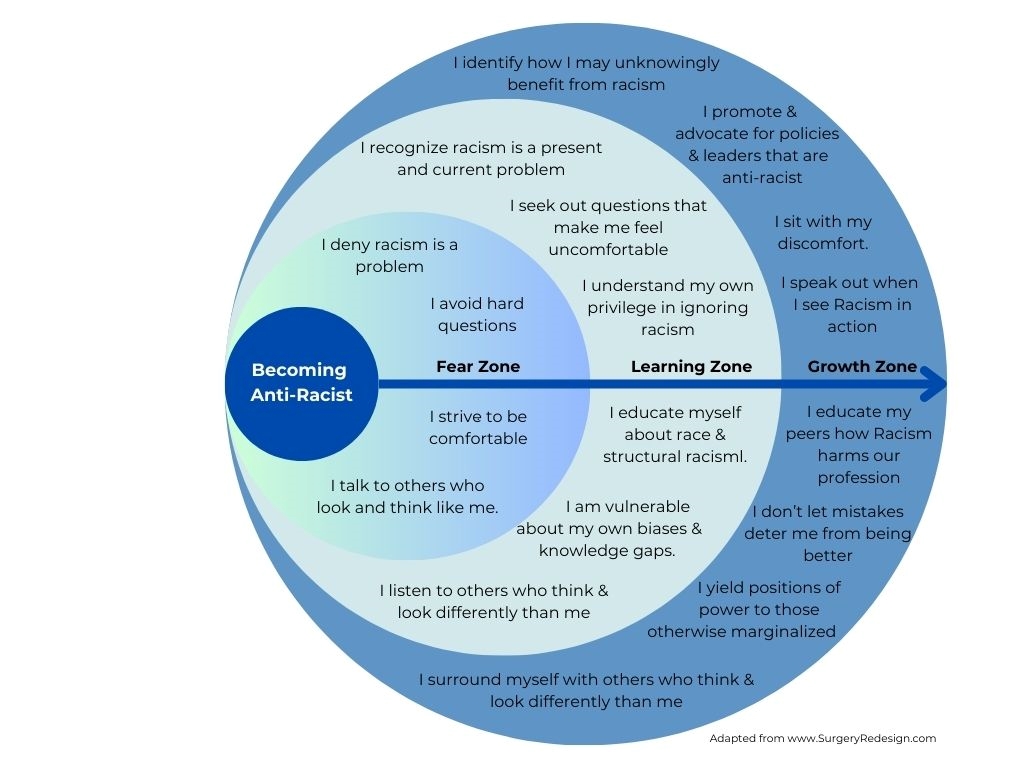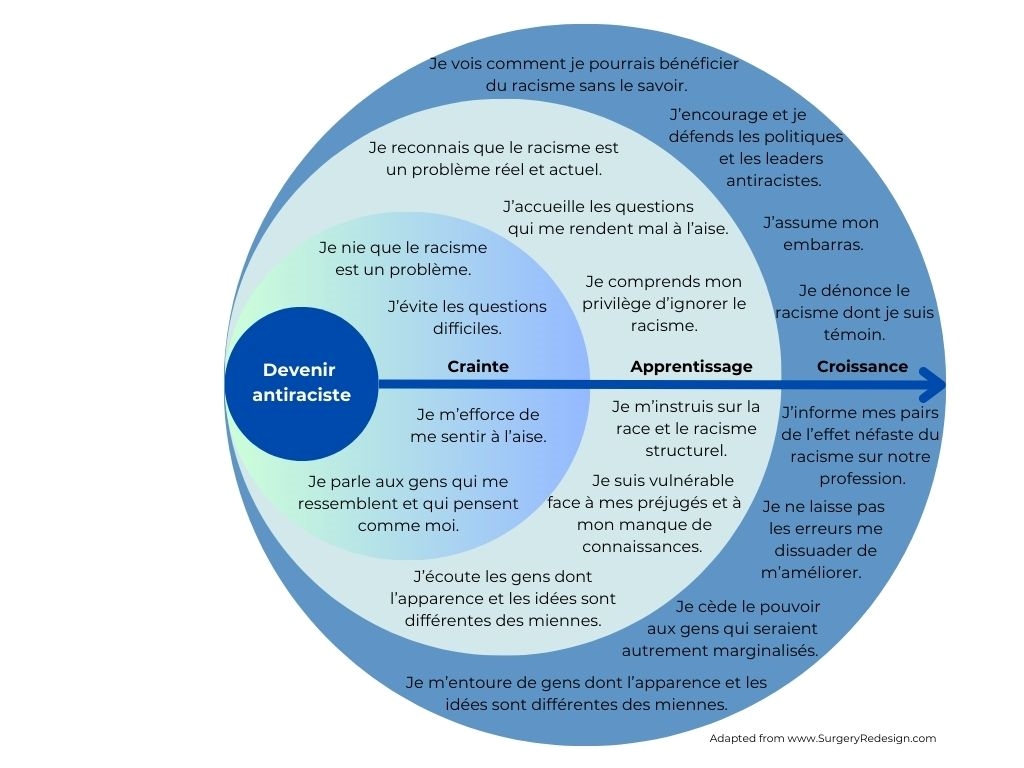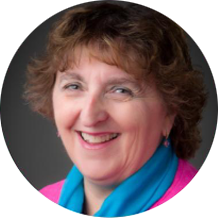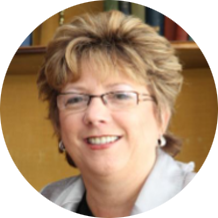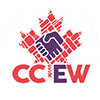Your Inclusive Person-Centric Hiring Solution
Continuing your Journey – Creating a Workplace of Inclusion, Diversity, Equity and Access
You Have Just Hired - Now What?
- In the process, you have been introduced to the importance of understanding the current state of your organization from an inclusion, diversity, equity and access perspective.
- Consider how you can strengthen inclusivity, equity and access within the daily activities and the overall culture of your organization.
Organizations that place a priority on developing inclusive hiring practices must consider what happens after a job offer is accepted.
- As you continue on your journey to be an inclusive employer of choice you will also want to create a welcoming workplace for your new hire and build a community where everyone feels they belong.
In Step 6, we provide some tips on how to create and sustain a community of belonging for new hire success and beyond.

What is a Community of Belonging?
Building a community of belonging, where new hires and the entire organization learn and grow together, is essential to fully reap the benefits of inclusion, diversity, equity, and access.
- Many of the strategies introduced in the Inclusive Hiring Solution set the stage to foster feelings of belonging.
- Now it is important to think beyond filling positions to creating long-term opportunities and ways that all team members will feel valued and can contribute to the ongoing success of the organization.
Why Create a Community of Belonging?
- Establishing a sense of belonging early on fosters a positive and inclusive work environment.
- Employees who feel a sense of belonging are more likely to be engaged, motivated, and productive.
- Feeling valued, supported, and connected to their colleagues, leads to increased job satisfaction and retention.
Additionally, a community of belonging encourages diversity of thought, innovation, and collaboration.
- Individuals from diverse backgrounds and perspectives feel comfortable contributing their unique ideas.
- Unlocking the full potential of your diverse talent leads to greater operational efficiency, enhanced service delivery, increased employee satisfaction, higher retention rates, and a lasting sense of belonging.
Ultimately, investing in creating a community of belonging not only benefits individual employees but also enhances the overall success and culture of the organization.
Embrace The 50 – 30 Challenge
- Gender parity (50% women and/or non-binary people) on Canadian boards and senior management and,
- Diverse representation (30%) of other equity-deserving groups such as racialized individuals, people with disabilities, 2SLGBTQAI+ individuals, and Indigenous Peoples.
If you are not familiar with the 50 – 30 Challenge and the What Works Tool Kit we invite you to learn more about the excellent resources available to support organizations on their journey to be more inclusive.
As you continue your journey to enhanced inclusion, you will find a few helpful resources from the Tool Kit to get you started.
- In addition, we invite you to explore some custom resources that are specifically related to welcoming and retaining your new hire developed by Egale Canada a 50 – 30 ecosystem partner and others.
Continuing Your Journey - Where to Begin
Welcoming Your New Hire
This Recruitment & Retention Guide for Small-Medium Employers developed by the Workforce Development Board is a valuable resource covering a range of topics.
- Onboarding Tips can be found on pages 23-25.
Retaining Your New Hire
Dive into this Egale Canada customized learning content that equips you with some tools and insights to create an inclusive workplace culture, that fosters employee growth, satisfaction, and long-term commitment.
- Retention strategies and tips are found in Part Two pages 26-35.
- While this resource is designed for a specific community, the tips are relevant in general and the references and community resources will help you find similar services in your area.
- Inclusive Language Guides
- Fact and Tip Sheets
- Articles
You will find how organizations are benefiting from applying DEI in their workplace practices.
- Explore the Seven Principles
- Deep Dive into how the WEPs promote DEI
- Explore DEI case Studies for each WEPS principle
Exploring Advantages and Disadvantages
- It will be helpful for team members to gain insight into how the intersecting aspects of our unique identities shape our lived experiences and afford each of us varying degrees of advantage or disadvantage based on society-imposed roles, rules, values and norms.
![]()
Complete this Activity
- Both this activity and the GBA+ Professional Development Certificate will help your team cultivate a culture of belonging and create an environment where employees in all their diversity can thrive.
- Sharon Anderes, Global Corporate Communications Manger, Vice-President ERB at Nestlé Nespresso
In what was described as The Kenya Gender Equality Training: Power Walk, participants are provided a powerful way to develop insight into how promotions and/or developmental opportunities are equitably accessible to all colleagues within your organization.
- Participants are randomly assigned various diverse personas different from their own lived experience, i.e. a widower with children under the age of 12, a woman who is the primary caregiver for aging parents, a single mother of 3 children etc.
- Considering their assigned persona they will step forward or step back based on a variety of training & development opportunities or perceived ability to apply for a promotion.
This idea can be customized by your organization to help the leadership team and/or HR practitioners see how to incorporate more equitable and inclusive avenues for all employees managing a range of responsibilities to realize their full potential.
Fostering Growth and Building a Learning Organization
- Provide coaching support, or a buddy system alongside a well-planned orientation (outlined in Welcoming Your New Hire) to help the new hire quickly integrate into the team.
- Prioritize personal and professional growth that acknowledges diverse learning styles and accessibility needs for the new hire and existing team members.
- Consider offering multi-directional and broad skill, experience and knowledge-based mentoring and sponsorship opportunities across all levels of the organization.
- Promote continuous learning and reflective growth for new hires and your organization to advance long-term success and foster inclusion.
- Dismantle systems of inequality and ensure full participation of all team members throughout the organization’s value chain.
- Building an Innovative Learning Organization by Russell Sarder.
- The Fifth Discipline: The Art and Practice of the Learning Organization, by Peter Senge.
![]()
Check out These Learning Resource:
- Inclusive IDEA Practice.
- Mentorship Programs.
- How to Empower & Fuel Innovation.
Explore the SOGIESC Inclusion Policy Brief developed by Egale.
- This brief on Sexual Orientation, Gender Identity, and (Gender) Expression, and Sex Characteristics (SOGIESC) serves as an introduction to developing policies that are relevant to organizations and their communities wanting to help promote workplace belonging and inclusion.
Create a Psychological Safe Place
- It provides a sense of belonging to a team with the opportunity to interact with its members and contribute to its purpose without fear of being punished or feeling rejected.
- Rewards vulnerability and engaging in behaviours such as; having the confidence to ask questions, to admit mistakes and to acknowledge not knowing everything.
- Review this Psychological Safety Learning Module by Synthesia Learning, shared in the 50 – 30 Challenge WWTK.
It explores 4 stages of Psychological Safety.
- Inclusion Safety.
- Learner Safety.
- Contributor Safety.
- Challenger Safety.
- It will require a concerted effort by all to actively contribute to a safe and healthy workspace that is inclusive and where all can thrive together.
Become an Anti Racist Inclusive Organization
- Embrace taking proactive actions to become an anti-racist organization.
- Accept that apprehension and resistance are a natural response to change.
- Overcoming fear is crucial to becoming an antiracist organization.
- To navigate fear, engage in self-reflection activities and conversations about important topics like racism and privilege.
- These conversations may be difficult but are necessary for learning and creating an inclusive work environment.
- Revisiting the historical context explored in Step 1 will help to keep you focused on your goals and moving forward.
- Check out the diagram by surgeryredesign.com for a visual representation of a pathway to living anti-racist ideals.
You will make Mistakes - Learn from Them - Be Kind and Courageous
- It is a natural part of continuous learning.
- Own your mistakes
- Reflecting and making adjustments is a proven continuous improvement process to achieve an inclusive workplace.
- Actively build upon your inclusive hiring efforts to advance the long-term success you desire for your organization.
- Revisit and explore resources that can further advance inclusion and diversity within your organization.
- Openly address any apprehensions or biases.
- Give yourself permission to learn from mistakes, and move forward.
- The more you engage in these conversations the more you will be able to manage potential challenges.
- This work will also be rewarding and energizing as you and your team learn to create a more open and inclusive work environment.
Let Perseverance and Courage be your Guide.
Remember to start small, share what you have learned, listen and reflect to continue to improve efforts to promote a safe space, and ensure fair treatment and equitable access for all.

“The alter ego of Perseverance is Optimism”
– Chris Hadfield
"Courage can be contagious, and hope can take on a life of its own"
– Michelle Obama
About The IDEAS4GE Solution-Builders Design Team
- From diverse backgrounds and work experiences, they came together to learn and share IDEAS.
- They analyzed the comprehensive list of IDEAS4GE generated by participants in the 1st IDEAS4GE Community Building Event.
Through an intensive “five-step solution design process” and using respectful listening and reflective learning this group;
- Explored how our individual and collective biases and privilege could impact our solution.
- Consistently demonstrated the power of sharing a diversity of perspectives to better understand the diverse needs and impact of our design decision-making process.
- Committed to learning, unlearning and relearning together to create a comprehensive strategy to promote inclusive person-centric hiring practices for businesses and organizations of all sizes across Canada.
- The IDEAS4GE generated at the 2nd Innovation Challenge held in conjunction with the Equal Futures Network 2023 – Rural & Northern Communities Summit and the Hybrid event held in Montreal emphasized the importance of cultivating a community of belonging and creating a continuous improvement learning culture.
- These concepts are incorporated into the What’s Next – Step 6 of this solution and are a natural extension of inclusive person-centric hiring practices introduced in Steps 1 through 5.
Thank you to every IDEAS4GE Solution Builder and to the countless multi-stakeholders who generated the IDEAS that ignited the imagination of our Solution builders.

Arzoo Zaheer
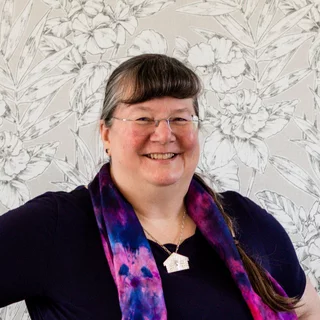
Chantal Fraser

Colleen Babiuk-Ilkiw

Lise Couturier
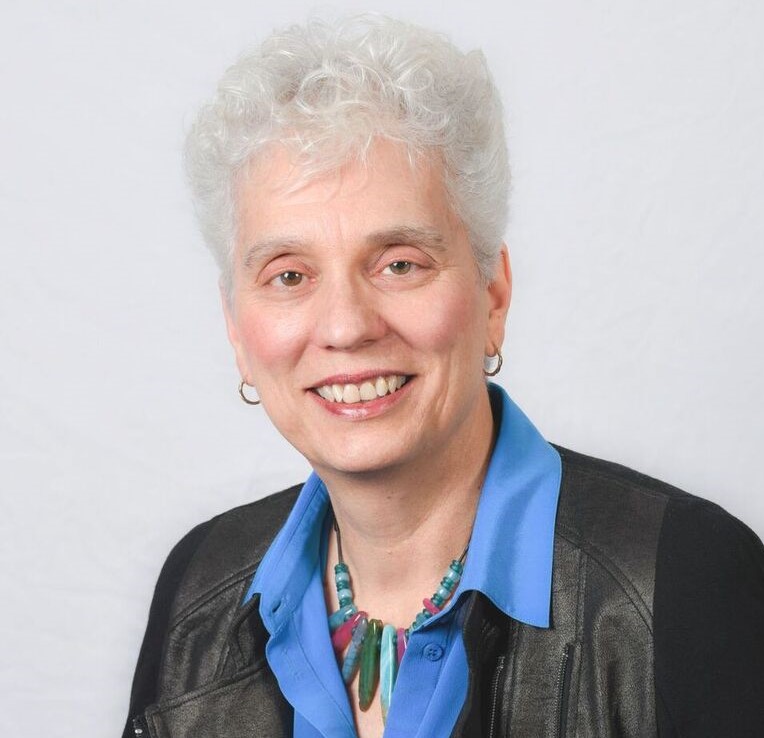
Kathryn Munn

Marie-Chantal Hamel
Mina Di Domenico
Sarah Cunningham

Shahina Suleman
The IDEAS4GE Team
Is grateful for the opportunity to work with these dedicated visionaries committed to Putting IDEAS4GE into Action.
Special Thanks to our Pilot Partners
- Their excitement and passion for the potential benefit and use of this resource by businesses and organizations of all sizes and at different stages on their journey was resounding.
Colleen Babiuk-Ilkiw,
BPW Member
Nancy Fischer
Community Board Member
Rob Flindall
Secondary School Teacher
Chantal Fraser
Thought Partner – Empowered Path Inc.
Tina Jordan
Kate Morin
Business Financing Coordinator
Sandra Robinson
Manager, Children’s Services |Social Services – City of Peterborough
Pamela Van Nest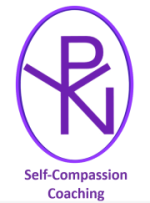
Reem Ali
DEI Advisor – City of Peterborough


